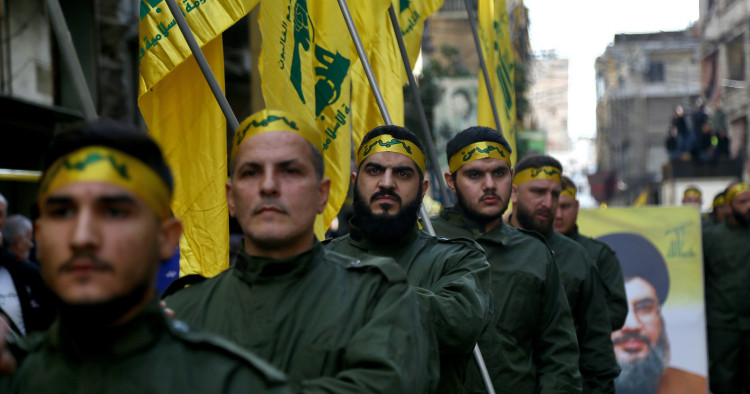A battle for hearts and minds is being waged in the winding alleyways of Beirut. The Lebanese are anxiously going about their lives while keeping an eye on the intensifying border skirmishes between Israel and the Iranian-backed militant group Hezbollah.
Plastered across the city walls and hanging from lampposts is the enigmatic image of Abu Obeida, Hamas’s masked spokesperson. Wrapped in a red kufiyah, the traditional Arab head garb, he is put forth as a symbol of defiance against Israel.
Meanwhile, a counter-campaign is trying to distance Lebanon from the devastating war to its south. Billboards with images of a child standing by a Christmas tree remind motorists that most Lebanese do not want war this holiday season, suggesting that Hezbollah must stop dragging the country into conflict in support of Hamas.
Israel is directly involved in this debate. Prime Minister Benjamin Netanyahu and Defense Minister Yoav Galant continue threatening to turn Beirut into another Gaza, should Hezbollah ignite a wider war. Several senior French envoys, including Foreign Minister Cathrine Colonna this week, visited the Lebanese capital to convey similar warnings. To avoid such a war, they stressed, Hezbollah must immediately withdraw its fighters from south Lebanon in accordance with United Nations Security Council Resolution 1701, the internationally brokered agreement that ended the Israel-Hezbollah war of 2006.
These demands, as terrifying as they are, are divorced from the realities on the ground and unlikely to alter the still-unfolding border conflict. Hezbollah, the most powerful non-state military force in the world, has been entrenching itself in south Lebanon for decades. Meanwhile, Israel, thousands of UN peacekeepers, and a series of ineffectual Lebanese governments have done little to challenge it.
Photo by Marwan Naamani/picture alliance via Getty Images
The Middle East Institute (MEI) is an independent, non-partisan, non-for-profit, educational organization. It does not engage in advocacy and its scholars’ opinions are their own. MEI welcomes financial donations, but retains sole editorial control over its work and its publications reflect only the authors’ views. For a listing of MEI donors, please click here.













